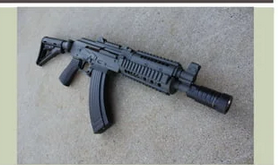The National Firearms Act (NFA) can be a national law that regulates the exchange and possession of firearms classified as Name II weapons. These weapons are typically referred to as device firearms, silencers, short-barreled rifles, short-barreled shotguns, and destructive devices. The NFA was unveiled in 1934 as part of the motion to lower the application of weaponry associated with prepared offense. It was later amended in 1968 to incorporate further requirements for firearms dealers national firearms act and limit the importation of firearms from international places. In this particular thorough guide, we shall consider a close look on the NFA as well as its key procedures.
One of many requirements from the NFA may be the signing up of Title II firearms with all the Bureau of Alcoholic beverages, Cigarettes, Firearms, and Explosives (ATF). This involves submitting an application, acquiring fingerprints, and having to pay a $200 tax stamp for each and every weapon. An exception to this particular prerequisite is definitely the exchange of firearms to other signed up NFA owners. This process is known as a taxes-totally free transfer or Develop 3 exchange.
An additional key provision of your NFA will be the restriction on thing of Name II firearms by people who are forbidden from having firearms. Including people who have a criminal record, anyone who has been adjudicated as mentally flawed, and unlawful aliens. NFA firearms may also be restricted from getting moved to those who usually do not stay in the identical status since the owner or dealership. This requirement may be waived for merchants that are licensed in several suggests.
The NFA also locations limitations about the production of new Label II firearms. Including the prohibition newest machine pistols for civilian use and needs for distinct marks on NFA firearms. The manufacture of short-barreled shotguns and rifles and suppressors requires acceptance through the ATF and transaction from the proper taxes stamp.
As well as limits on possession and create, the NFA also spots needs on firearms retailers. Retailers must have a federal government firearms certification (FFL) from the ATF and comply with numerous rules concerning record keeping, background record checks, and waiting time periods for handgun purchases. Sellers who want to transfer NFA firearms should also have a unique occupational taxation stamp.
In short:
To sum up, the National Firearms Act is a federal government rules that controls the exchange and possession of Title II firearms. Registration using the ATF, limitations on possession by restricted men and women, and restrictions on produce, move, and sale are common important provisions from the NFA. Proper conformity with the NFA and its needs can help avoid the prohibited consumption of Title II firearms and advertise general public protection. As with any firearms-associated rules, it is very important keep up-to-date on changes and demands to make certain concurrence.
